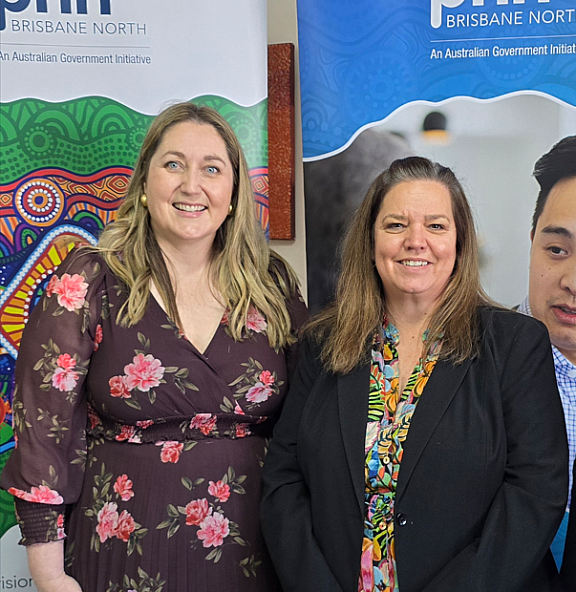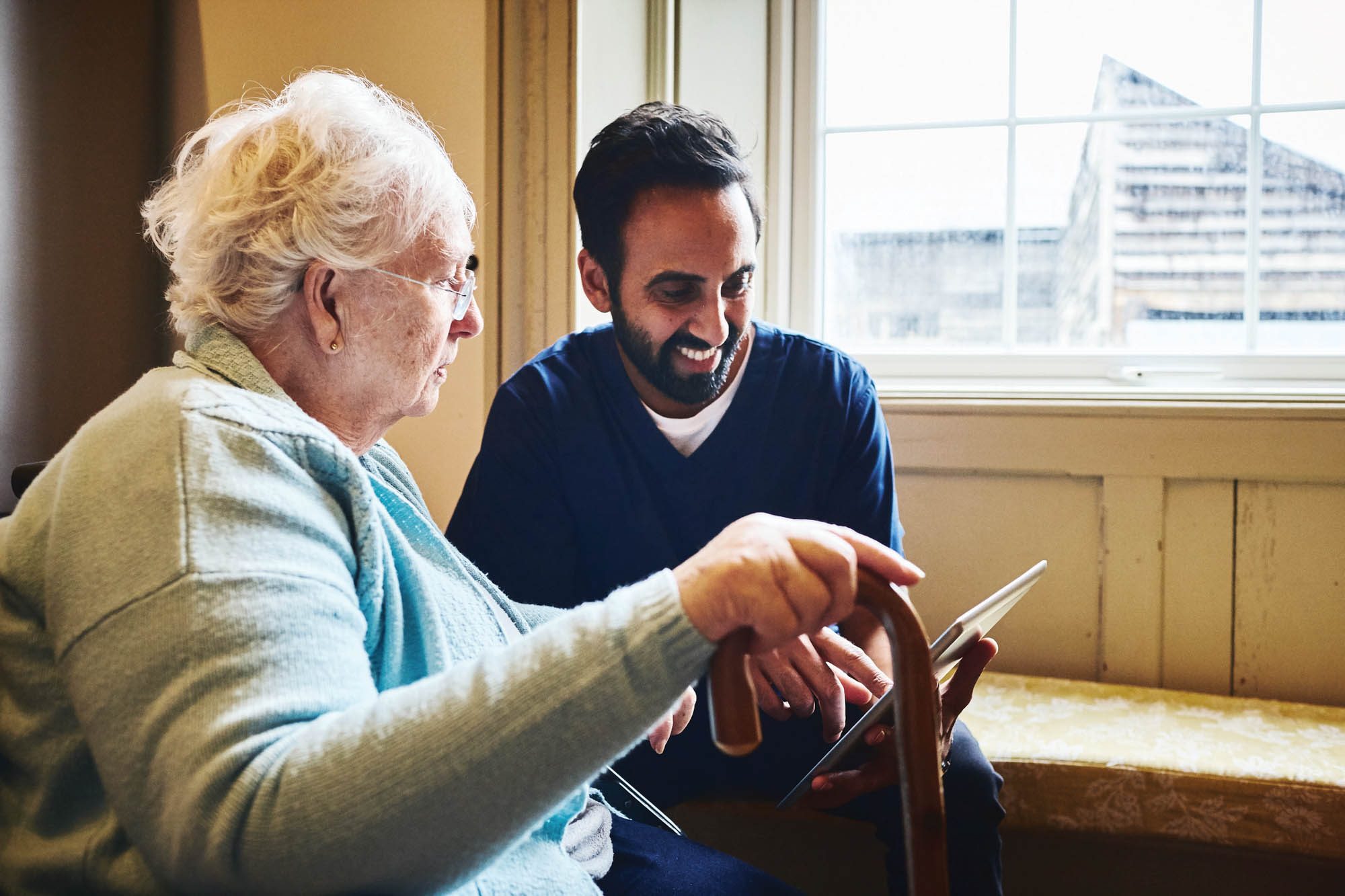
Announced: North Brisbane and Moreton Bay Medicare Mental Health Centres opening from July
Mar 27, 2025
May 25, 2020

By Julie Morrow, Manager | Healthy Ageing
Acknowledging the greater risk older people face from COVID-19, local aged care service providers are staying connected with their clients through regular telephone contact and supporting their wellbeing with 'shop and drop' services.
Since the beginning of the pandemic, providers have reported a steady increase in the number of Commonwealth Home Support Program (CHSP) clients declining their usual in-home social and care-related services due to infection fears.
In addition, centre and group-based aged care programs are temporarily suspended and the number of aged care assessments by Regional Assessment Service (RAS) agencies has also decreased, as older people delay seeking community based services.
Social isolation increasing
Social isolation was already a growing issue for this older cohort and, while it is necessary for people aged 70 and over to heed government recommendations to self-isolate to minimise their risk of exposure to the SARS-COV-2 virus, this can compound the risk of isolation.
According to a recent article published in The Lancet medical journal, the impact of quarantine can cause a loss of usual routine, a decrease in social and physical contact and a sense of isolation from the rest of the world. The authors found that these issues can culminate in feelings of frustration and boredom, which can cause psychological distress.
Other stressors include infection fears, financial loss, stigma and inadequate supplies. In response, older people need practical advice on coping and stress management techniques.
Aged care sector responds
Brisbane North PHN leads a local consortium of CHSP providers and peak bodies, collectively known as healthy@home, as part of the broader strategic work it undertakes to improve coordination of care.
CHSP clients generally fall into the most at-risk population groups for severe COVID-19: People over 70 years of age; those with chronic medical conditions or weakened immune systems; and people who identify as Aboriginal or Torres Strait Islander.
Aptly named ‘shop and drop’ services are one way the sector is responding. These ensure clients do not have to leave home to access sufficient healthy food and other necessary supplies to maintain good health and wellbeing.
Meanwhile, regular telephone contact is proving valuable in the quest to combat social isolation facing these clients. Centacare has mobilised its dedicated counsellors to provide support for clients who are experiencing mental health concerns at this time.
Area General Manager at Centacare Brisbane North Desley Chorlton said they are looking at a range of new ways to support clients and reduce isolation in their new circumstances, with regular check in calls, home – or even patio – visits, utilising technology for virtual visits, and ongoing domestic and personal assistance services.
Communify and Burnie Brae are introducing iPad technology using platforms such as Zoom or Facebook to continue running social group activities with their clients. They are facilitating virtual groups such as art therapy, cooking and social groups, exercise classes and knitting groups.
Communify CEO Karen Dare said clients had embraced the new online format. “We’ve been overwhelmed by how easy it was to switch to running virtual activities. We’re having a lot of fun with it and are now planning a quiz night,” Ms Dare said. “We’ll certainly be doing a lot more of it. The sky’s the limit really,” she said.
However, while many seniors are comfortable relying on technology to maintain their social networks, staying connected is more challenging for others who do not have internet-connected devices.
To further reduce the risk of COVID-19 infection, Regional Assessment Service (RAS) assessors are now largely completing the usual face-to-face in-home aged care assessments by telephone. They are also maintaining contact with clients postassessment through regular welfare checks, until clients are connected with the services they need.
The Australian Government Department of Health is providing greater flexibility for clients affected by COVID-19 to access CHSP services in urgent or emergency circumstances and in some cases, services may be provided for up to six weeks without the need for an assessment.
This can be organised through the My Aged Care Contact Centre (1800 200 422) or directly with a service provider. Aged care providers have also been given greater funding flexibility across service types and across service delivery regions to meet the needs of older people.
Unresolved issues
While essential in-home community care nursing and allied health services have not reported a noticeable drop in demand to date, these are likely to come under increasing stress.
Potentially, this will be due to delays to non-urgent surgical procedures as hospitals prioritise patients with COVID-19, the transfer of hospital outpatient care to community settings, increasing demand on general practitioners, and the fast approaching flu season.
Key issues for aged care service providers also include access to suitable Personal Protective Equipment (PPE) and ensuring older people have access to the flu vaccination.
Retention of non-clinical aged care workers due to declining levels of service provision is also a looming concern for providers, as is the need for more community nursing staff in the event of a surge in demand. More broadly, providers are focused on supporting the health and wellbeing of aged care workers who are at the frontline of supporting older people in the community.
To contact Julie Morrow, call 07 3630 7360 or email Julie.Morrow@brisbanenorthphn.org.au.

We acknowledge the Traditional Custodians within our region: the Jagera, Turrbal, Gubbi Gubbi, Waka Waka and the Ningy Ningy peoples of where we meet, work and learn. Brisbane North PHN is committed to reconciliation. Our vision for reconciliation is where the stories of our First Nations’ people are heard and shared, and networks are formed.